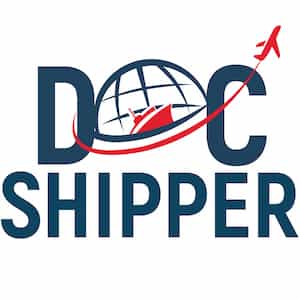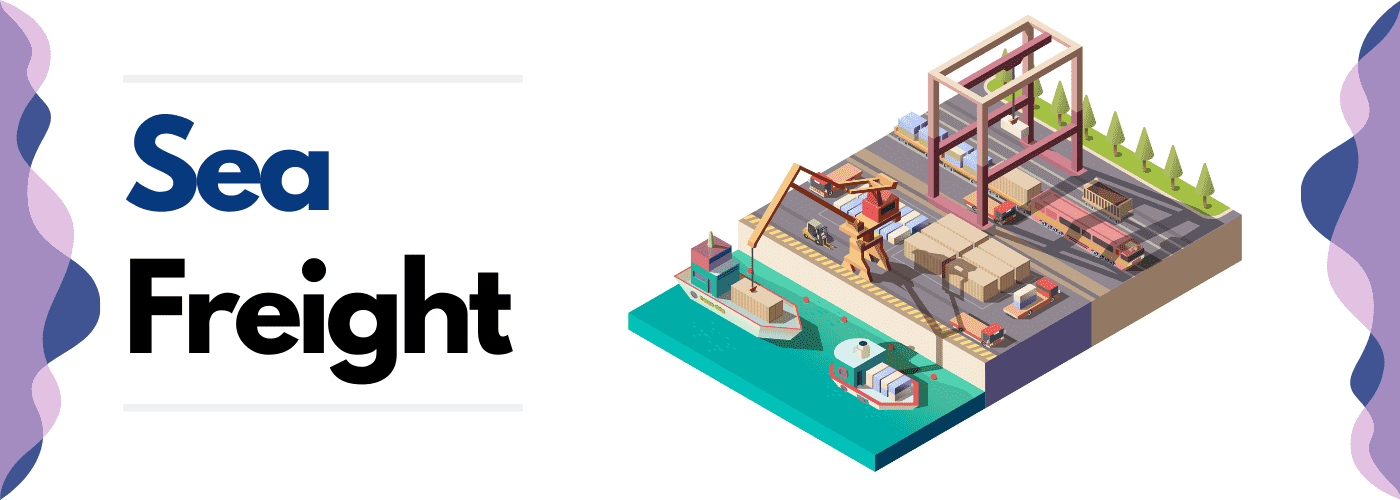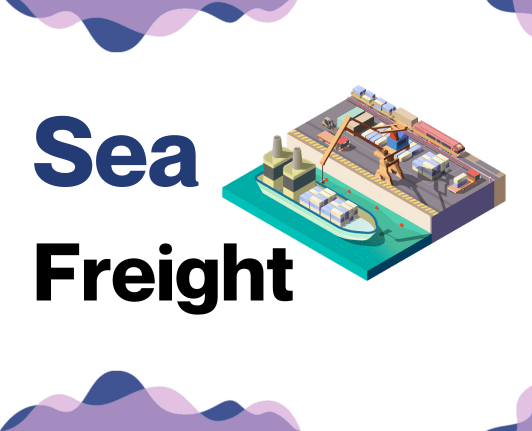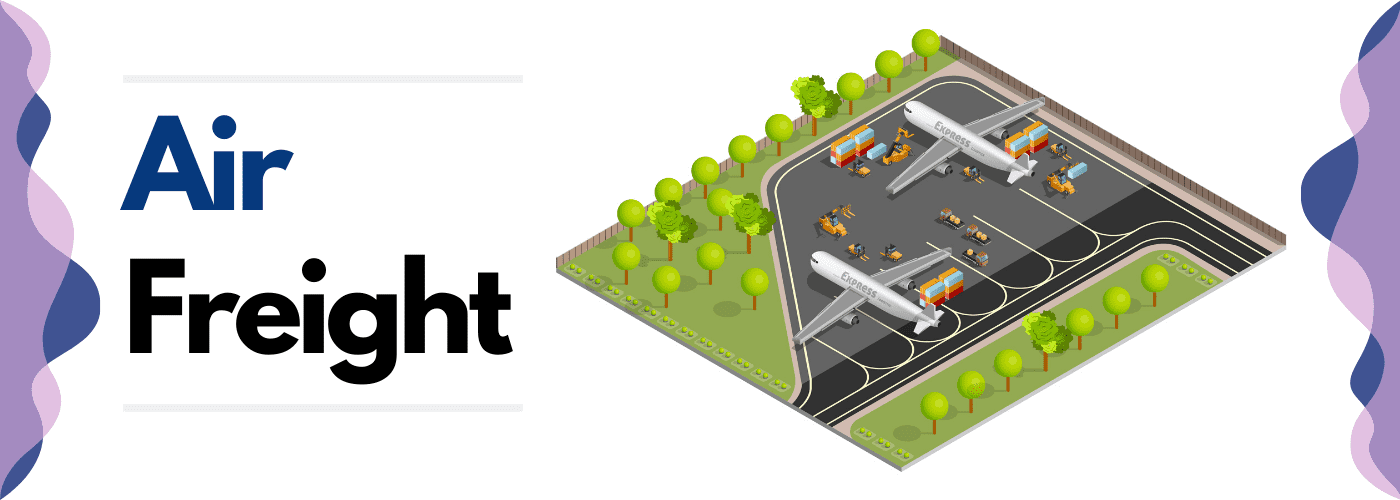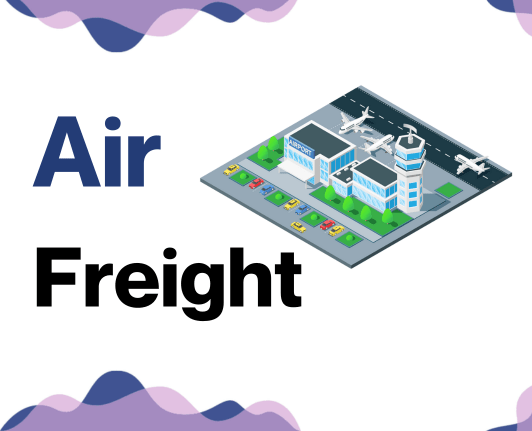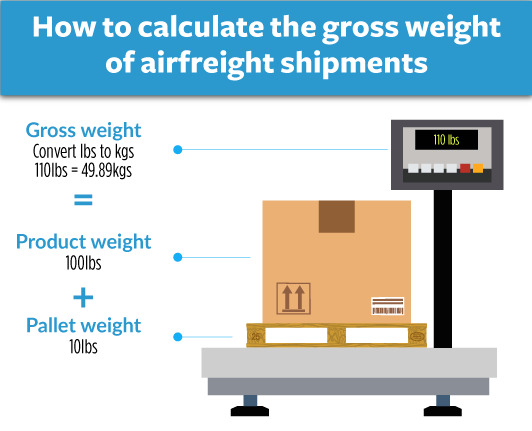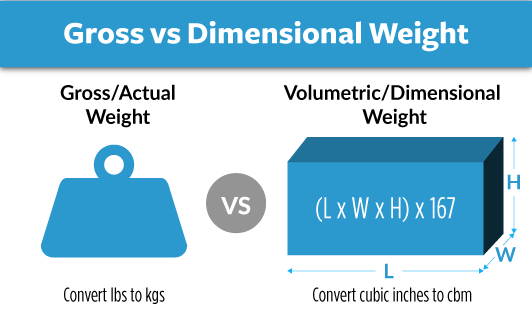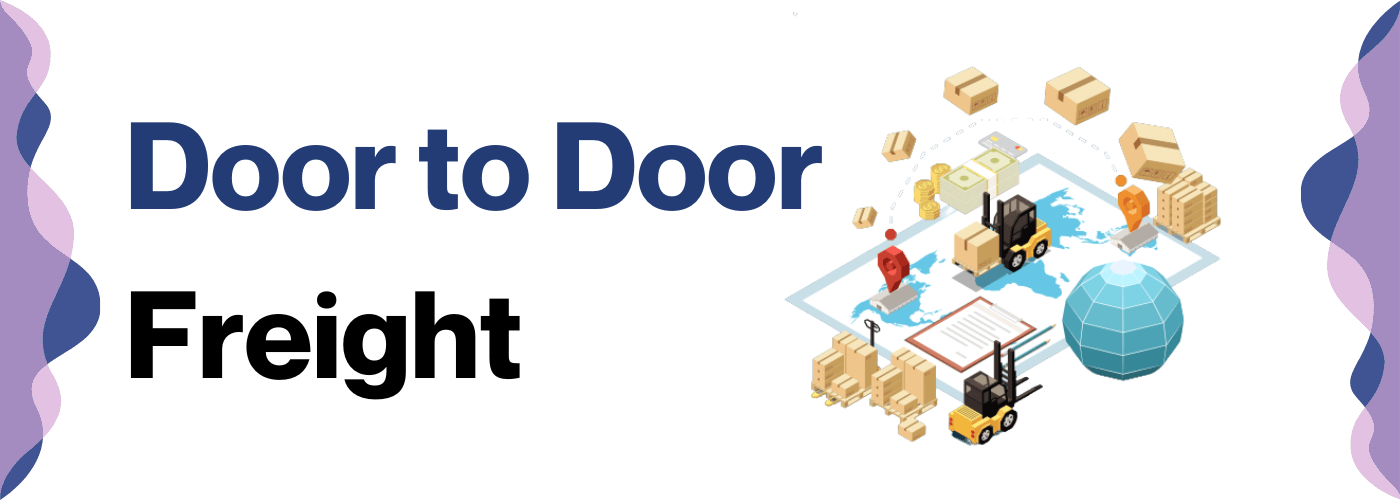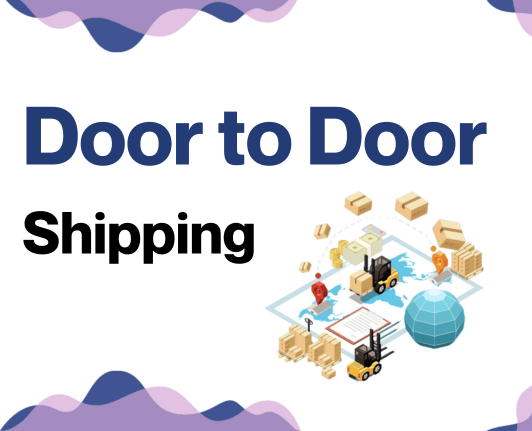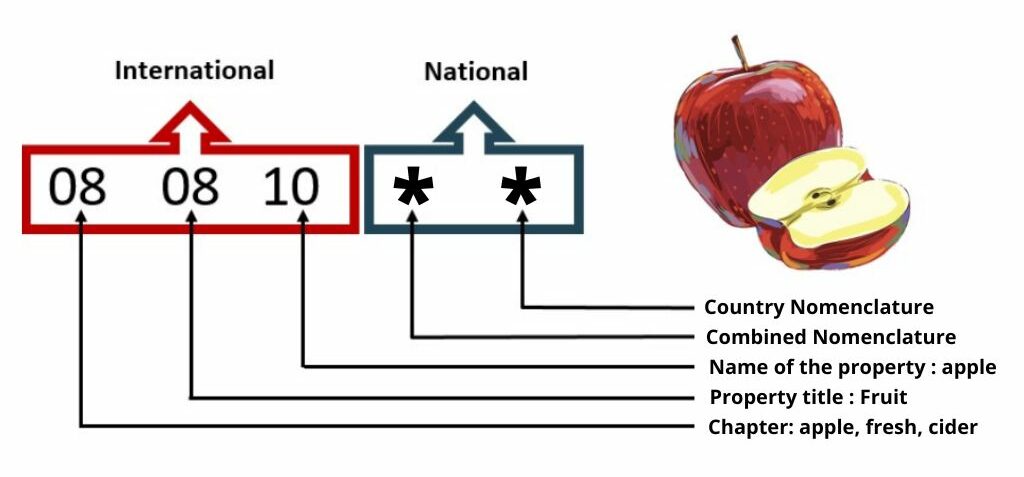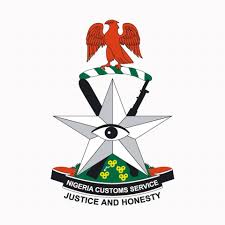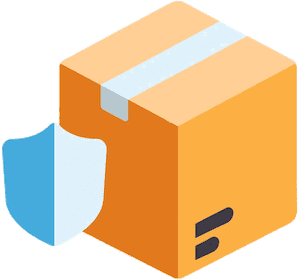Shuffling goods between Malaysia and Nigeria isn't exactly a tango dance at a bustling night market, but with the right guidance, it can certainly lose some of its complexities. Key challenges businesses often face include decoding freight rates, estimating transit times, and grappling with customs regulations. This comprehensive guide is set to demystify these obstacles by providing rich insights into different types of transport modes, the nitty-gritty of customs clearance, duties, taxes, and tailored advice to streamline your shipping experience between these two diverse nations. If the process still feels overwhelming, let DocShipper handle it for you! As experienced international freight forwarders, we turn these daunting challenges into smooth sailing success stories for businesses every single day.
Table of Contents
Which are the different modes of transportation between Malaysia and Nigeria?
Transporting goods from Malaysia's bustling ports to the vibrant markets of Nigeria may seem daunting due to the daunting distance and international territories that lie in between. But don't fret! You've got practical options that neatly sidestep these geographic obstacles. Our guide will sail you through the maze of freight choices while emphasizing the importance of sailing (quite literally, if correct!) in alignment with your shipping needs. It's all about matching your unique shipping challenges with the perfect transport method, just like pairing the right wine with dinner. Ready to meet your perfect match? Let's dive right in.
How can DocShipper help?
Trading between Malaysia and Nigeria can be a puzzle. With DocShipper, you have a reliable partner to handle the intricacies of cross-border shipments - from arranging transport to handling customs. Ready for a stress-free shipping experience? Contact our consultants for a free estimate within 24 hours. Any questions? Call us - we're here to help.
DocShipper Tip: Sea freight might be the best solution for you if:
- You're dealing with hefty quantities or oversized goods. Sea transport is your go-to for maximizing space without stretching your budget.
- Time sensitivity isn't a concern for your shipment. Ocean freight is known for its leisurely pace, especially when compared to the speed of air or rail.
- Your supply chain connects key international harbors. This positions you to take full advantage of a wide-reaching network of ocean trade routes.
Sea freight between Malaysia and Nigeria
With a vibrant exchange of goods, Malaysia and Nigeria form a dynamic trading partnership connected by the sea freight . Your business can tap into this trade route via key cargo ports like the bustling Port Klang in Malaysia and the ever-busy Lagos Port in Nigeria. The oceanic highway, albeit slow, tends to indeed be the most economical option for shipping colossal volumes.
However, adventures on this maritime route can be as choppy as the waves themselves. Mistakes are bound to happen, and the labyrinth of paperwork can leave your head spinning faster than a ship's propeller. Overcoming these challenges is akin to acing high stakes hurdles in a relay race. But don't worry - like a reliable coxswain, we'll steer you through the waves and around pitfalls. This guide will equip you with key strategies and best practices to turn you from an apprehensive novice into a confident shipper, making ocean shipping from Malaysia to Nigeria a breeze.
Main shipping ports in Malaysia
Port Klang
Location and Volume: Located on the Strait of Malacca, west of Malaysia, Port Klang is one of the busiest shipping ports in the world, accommodating an annual capacity of around 12 million TEUs (Twenty-Foot Equivalent Units).
Key Trading Partners and Strategic Importance: Port Klang's key trading partners include China, Singapore, Japan, the EU, and the USA. The port is strategically important because of its proximity to Kuala Lumpur, the capital of Malaysia.
Context for Businesses: If you're looking to expand your trade in Southeast Asia, Port Klang could be an integral part of your strategy. Its widespread network means a high potential for establishing trade relations with many countries.
Port of Tanjung Pelepas
Location and Volume: Situated in the southwestern state of Johor, the Port of Tanjung Pelepas is the second biggest port in Malaysia, boasting a shipping volume of over 9 million TEUs annually.
Key Trading Partners and Strategic Importance: Its prime trading partners are China, Singapore, the EU, and the USA. Its location at the confluence of main shipping lanes in Asia made it a strategic port for transshipment containers.
Context for Businesses: If your aim is to establish a transshipment hub or take advantage of the rapidly growing markets in Asia, the Port of Tanjung Pelepas offers excellent connectivity and efficiency powered by state-of-the-art facilities.
Bintulu Port
Location and Volume: Bintulu Port, in the state of Sarawak on the island of Borneo, is setting its mark within the shipping industry, handling over 50 million tons of cargo annually.
Key Trading Partners and Strategic Importance: The port primarily trades with countries like Japan, South Korea, and Taiwan. This port has strategic importance due to its place as Malaysia's main commodity export gateway.
Context for Businesses: Bintulu Port is crucial if you plan to export oil, gas, or commodities from Malaysia. Its designated free trade zone makes it a valuable asset for firms looking to control their logistics and reduce costs.
Penang Port
Location and Volume: On the northwest coast of Peninsular Malaysia, Penang Port handles around 1.5 million TEUs per year.
Key Trading Partners and Strategic Importance: It trades primarily with China, India, Singapore, and Indonesia. Given its history and location on the strategic Malacca Strait, it remains one of Malaysia's most vital shipping hubs.
Context for Businesses: Looking to trade with northern parts of Malaysia or mainland Southeast Asia? Penang Port with its well-established infrastructure and handling capabilities offers a valuable gateway for businesses.
Port of Sepanggar
Location and Volume: The Port of Sepanggar, located in Sabah, East Malaysia, boasts a shipping volume of nearly 500,000 TEUs annually.
Key Trading Partners and Strategic Importance: The port has strong trading ties to the Philippines, Indonesia, Singapura, and Brunei. Serving both sea and rail transport, it is a strategic location for businesses in the BIMP-EAGA region.
Context for Businesses: The Port of Sepanggar could be a valuable asset if you're looking to serve markets in the Borneo region and nearby ASEAN countries, connecting you efficiently to the expanding markets of the region.
Port of Tanjung Bruas
Location and Volume: Located in the state of Malacca, the Port of Tanjung Bruas deals with variety types of cargoes but mainly serves as a bulk and break bulk port.
Key Trading Partners and Strategic Importance: With its key partners being Indonesia, China, and Vietnam, it has strategic importance for its potential to grow as the state's main international port due to its recent rejuvenation projects.
Context for Businesses: If you're looking to import or export bulk products such as fertilizers or construction materials, the Port of Tanjung Bruas is arguably your best bet. Well-managed and equipped, the port is increasingly becoming a hub for bulk product shipping.
Main shipping ports in Nigeria
Apapa Port Complex:
Location and Volume: Nestled in Lagos, Nigeria's bustling hub, the Apapa Port Complex stands as a key player in the country's international trade dynamic, delivering a throughput of more than 700,000 TEUs annually.
Key Trading Partners and Strategic Importance: Acting as one of the main channels of trade with principal partners such as China, India, the United States, Netherlands, and Spain, its strategic convenience contributes significantly to Nigeria's commercial vitality.
Context for Businesses: If your enterprise aims to penetrate the vibrant West African market, leveraging this port's robust network can provide you considerable competitive advantages due to its efficient handling capacity and prime location.
Onne Port:
Location and Volume: Onne Port situates in River State which houses the bustling Oil and Gas Free Zone. It is pivotal in the distribution of oil-related goods and volumes reaching over 300,000 TEUs.
Key Trading Partners and Strategic Importance: It is heavily patronized by oil-producing and exporting countries, marking a huge significance to Nigeria's energy sector trade.
Context for Businesses: Onne Port is your go-to logistics solution if your shipping plans are concentrated around the petroleum industry or if you're keen on tapping into Nigeria's sizable oil and gas sector, offering focused amenities and services.
Tin Can Island Port:
Location and Volume: Positioned on Lagos Harbor, Tin Can Island Port sees an approximate traffic volume close to Apapa Port's, emphasizing its vital role in Nigeria's international trade.
Key Trading Partners and Strategic Importance: It principally facilitates business transactions with countries such as China, United States, India, Belgium, and Spain.
Context for Businesses: For enterprises with a strong inclination towards consumer goods, this port's impressive handling of general cargo makes it a prime choice for shipping, ensuring your goods are efficiently channeled into Nigeria's vast consumer market.
Calabar Port:
Location and Volume: Calabar Port, located in Cross River State, services Nigeria's eastern region with a capacity of around 36,000 TEUs.
Key Trading Partners and Strategic Importance: Positioned strategically as the main gateway to North-Eastern Nigeria, Chad and Niger, it serves as a major trade connection to these regions.
Context for Businesses: Tailored buoyantly for agriculture and oil-related enterprises, Calabar Port offers an efficient gateway into North-Eastern Nigeria and beyond, providing ample opportunities for businesses aiming at these markets.
Rivers Port:
Location and Volume: Located in Rivers State, Rivers Port sees a significant amount of bulk cargo pass through its docks.
Key Trading Partners and Strategic Importance: It allows for easy shipping to major West African coasts and plays an important role in bulk and project cargo for trade with regions like Asia and North America.
Context for Businesses: If your trade operations rely heavily on bulk cargo, especially grain or cement, Rivers Port emerges as an optimal choice, designed for bulk cargo handling and located in the center of industrial activity.
Warri Port:
Location and Volume: Based in Delta State, Warri Port services the south-south region, chiefly handling petroleum and related products, though its volume falls behind the aforementioned ports.
Key Trading Partners and Strategic Importance: Countries engaged in the petroleum trade, especially from Europe and America, comprise its key trading partners.
Context for Businesses: Warri Port can be a strategic component of your distribution strategy if your operations center around petroleum products due to the port's affiliation with Nigeria's abundance of petroleum resources.
Should I choose FCL or LCL when shipping between Malaysia and Nigeria?
Deciding between shipping by consolidation or full container from Malaysia to Nigeria? This choice is more than simple logistics. It directly influences your shipment's cost, timeline, and successful delivery. Unravel the complexities of Full Container Load (FCL) and Less than Container Load (LCL) in this guide. Understand their differences and gain insights to make an informed, tailor-made decision for your specific shipping needs. This won't just be about shipping - it'll be a strategic move, paving the way for your business success. Let's set sail!
LCL: Less than Container Load
Definition: LCL (Less than Container Load) shipment refers to the transportation of goods that do not fully occupy a standard container's space. The cargo is consolidated with others to efficiently utilize the space.
When to Use: If your cargo volume ranges from less than 15 cubic meters (CBM), opting for LCL freight is a cost-effective and flexible choice.
Example: Imagine you're a Malaysian furniture manufacturer and you have an order of 10 CBM to send to a retailer in Nigeria. Instead of bearing the cost of a full container, you can use LCL shipping to split the cost with other shippers.
Cost Implications: While the sub-charges within an LCL freight quote might be higher due to extra handling needed, the overall cost is generally less than a full container load. Also, keep in mind that the final LCL freight rate will also consider factors like the cargo's weight and dimensions.
FCL: Full Container Load
Definition: FCL or 'Full Container Load' shipping involves renting the full capacity of a shipping container which can be a 20'ft container or 40'ft container. This is an optimal solution for larger shipments.
When to Use: Ideal for transporting larger cargo volumes of more than 13/14/15 CBM, FCL is cost-effective and guarantees the safety of your goods. Since the container is sealed from origin to destination, it minimizes the risk of damage or loss.
Example: Consider a business exporting furniture from Malaysia to Nigeria. The items are bulky and easily fill up a 20'ft container. In such situations, FCL shipping is the optimal choice due to its effectiveness in handling high-volume shipping.
Cost Implications: While the initial FCL shipping quote may seem high, it becomes the cheaper option when the cost is distributed per unit volume. Moreover, the extra safety provided to your goods minimizes potential costs on lost or damaged items, assuring you of a safer and more affordable journey for your merchandise.
Unlock hassle-free shipping
Navigating the complexities of shipping between Malaysia and Nigeria? Let DocShipper take the helm. Our team of ocean freight experts specializes in making cargo shipping seamless and hassle-free. We'll guide you to choose the ideal option, whether consolidation or full container, based on your budget, timeline, and cargo type. Ready to simplify your international trade journey? Contact us for a free estimation today.
How long does sea freight take between Malaysia and Nigeria?
Sea freight between Malaysia and Nigeria typically takes an average of 30 to 40 days. Several elements play into this time frame such as the specific ports at which loading and offloading occur, the weight of the shipment, and the nature of the goods. For more accurate and specific estimates, we recommend reaching out to a competent freight forwarder, like DocShipper, for a personalized quote.
Below is a table showcasing the average transit times (expressed in days) for sea freight between the main freight ports of both countries.
| Malaysian Ports | Nigerian Ports | Average Transit Time (Days) |
| Port Klang | Lagos Port | 32 |
| Port of Penang | Port Harcourt | 30 |
| Port of Tanjung Pelepas | Calabar Port | 35 |
| Port of Bintulu | Onne Port | 39 |
*Remember that these times are just estimates and the actual transit time might be different, influenced by specific factors unique to each shipment.
How much does it cost to ship a container between Malaysia and Nigeria?
Navigating the complexities of container shipping between Malaysia and Nigeria? Ocean freight rates can come as a surprise owing to the wide range which depends on various factors. Your shipping cost is influenced by the Point of Loading, Point of Destination, the specific carrier, nature of goods as well as monthly market fluctuations.
It's tricky to provide an exact shipping quote without considering these specifics - that's where we come in. Our shipping specialists diligently consider every factor to equip you with a tailored quote, eliminating uncertainty from the equation. Rest assured, we exemplify commitment and expertise, offering best rates on a case-by-case basis. Remember, every shipment is unique, just like you!
Special transportation services
Out of Gauge (OOG) Container
Definition: An Out of Gauge (OOG) container is designed to transport oversized or irregular-shaped cargo that can't fit in standard containers. This is essentially your solution for out of gauge cargo that a conventional box just won't hold.
Suitable for: Project cargo, large machinery, industrial equipment, and any other oversized items that exceed the dimensions of standard containers.
Examples: Construction equipment, large turbines, or massive industrial components.
Why it might be the best choice for you: If your business involves large or oddly shaped equipment that can't fit in standard containers, an OOG container can be the perfect solution.
Break Bulk
Definition: Break bulk is a shipping method where goods are loaded individually, not in containers or packaging. This loose cargo load type is suited for goods that are too large or heavy to be loaded onto containers.
Suitable for: Construction materials, machinery, timber, steel bars, etc.
Examples: Logs, metal beams, big pipes, or large generators.
Why it might be the best choice for you: If your cargo doesn't fit into regular containers and isn't suitable for flat racks, then break bulk could be your ideal option.
Dry Bulk
Definition: Dry bulk shipping is the transportation of large quantities of un-packaged materials like grain, coal, ore, cement, etc., loaded directly into the ship's hold.
Suitable for: commodities in bulk quantities that are non-liquid and can be scooped or poured.
Examples: Grains, fertilizers, cements, or coals.
Why it might be the best choice for you: If your goods are in large quantities and don't require packaging, this can be a cost-effective and efficient shipping method.
Roll-on/Roll-off (Ro-Ro)
Definition: Roll-on/Roll-off (Ro-Ro) is a shipping method designed for cargoes, which are driven on and off the ro-ro vessel under their own wheels or using a platform vehicle.
Suitable for: Cars, trucks, trailers, tractors, railway carriages, and all kinds of self-propelled or towable machinery.
Examples: Brand-new cars, bulldozers, cranes, or a fleet of motorcycles.
Why it might be the best choice for you: If your business involves exporting or importing vehicles or heavy machinery, the Ro-Ro option offers simplicity and cost-effectiveness.
Reefer Containers
Definition: Reefer containers are temperature-controlled containers used to transport perishable goods that require a specific temperature.
Suitable for: Fresh produce, meat, fish, dairy products, pharmaceuticals, and other temperature-sensitive goods.
Examples: Fresh flowers, frozen seafood, vaccines or high-quality chocolates.
Why it might be the best choice for you: If you deal with perishable or temperature-sensitive items, reefer containers can maintain your product’s desired temperature, ensuring they reach their destination safely.
Navigating the complexities of international shipping can be challenging, but worry not, DocShipper is here to help! Feel free to contact us anytime, and we'll provide a free shipping quote in less than 24 hours. Let's make your shipping between Malaysia and Nigeria seamless and hassle-free!
DocShipper Tip: Air freight might be the best solution for you if:
- You're pressed for time or facing a non-negotiable deadline. Air freight delivers unparalleled speed when it comes to transit times.
- Your shipment is modest in size, falling under 2 CBM. Air freight is particularly well-suited for these smaller consignments.
- Your supply chain includes destinations that are off the beaten maritime or rail paths. Air freight gives you access to a comprehensive global airport network.
Air freight between Malaysia and Nigeria
Air freight between Malaysia and Nigeria is like an express courier, quicker and more dependable. It's ideal for smaller shipments that pack a punch in value, such as electronics or intricate fashion accessories. It's akin to carrying only as much as you can run with during a shopping spree - you're paying for the speed and efficiency. However, zooming in on the challenges, shippers often stumble on key details, which can unleash a whirlwind of extra costs. Many fail to use the precise weight formula when calculating shipment cost, like measuring the weight of a feather with a farm scale – it’s simply not accurate. Stay tuned as we unpack these issues and solve this fiscal puzzle.
Air Cargo vs Express Air Freight: How should I ship?
Choosing between Air Cargo and Express Air Freight for your Malaysia-Nigeria shipment isn't just a toss-up; there's a world of difference. Think of it this way: Air Cargo gets cozy with other packages in an airline, making for cost-effective transit, while Express Air Freight flies solo on a dedicated plane, ensuring speed and priority. Let's help you make that all-important choice as we video-chat the pros and cons of both methods in this segment. Trust us, it's all about aligning with your business requirements to promote efficient shipping.
Should I choose Air Cargo between Malaysia and Nigeria?
Considering Air Cargo for your Malaysia to Nigeria shipments? It's a cost-effective, reliable choice, especially appealing for heavier cargos of 100-150 kg. Airlines such as Malaysia Airlines and Arik Air regularly offer international cargo services. Do keep in mind, air cargo often has longer transit times due to fixed schedules. However, if balancing budget and transit times is your primary concern, this might be the perfect solution for your freight needs. Remember, there's no 'one size fits all' in logistics; understanding your specific shipping requirements is key.
Should I choose Express Air Freight between Malaysia and Nigeria?
Express Air Freight, powered by leading global firms like FedEx, UPS, and DHL, offers quick, efficient shipping solutions. Using cargo planes without passenger distraction, these carriers specialize in fast delivery of small volume goods. If your cargo to Nigeria falls under 1 CBM or weighs 100/150 kg (220/330 lbs), this may be an ideal choice. Your Malaysia-bound shipments will be prioritized, reaching their destination swiftly and securely. So, for urgent, less bulky goods, express air freight holds the key.
Main international airports in Malaysia
Kuala Lumpur International Airport
Cargo Volume: Over 1.8 million metric tonnes annually.
Key Trading Partners: China, USA, Singapore, Japan, and India.
Strategic Importance: Situated in a global shipping hub, KLIA serves as an essential connector between the East and West.
Notable Features: KLIA has advanced cold chain facilities, perfect for perishable and pharmaceutical products, and a dedicated cargo village called KLIA Aeropolis.
For Your Business: Given its strategic location and robust facilities, consider KLIA if you stand to gain from quicker, more reliable shipments between the East and West.
Penang International Airport
Cargo Volume: More than 350,000 metric tonnes annually.
Key Trading Partners: Hong Kong, China, Singapore, Indonesia, and Thailand.
Strategic Importance: As one of the busiest airports in Malaysia, Penang International is central to the thriving business sector in Northern Malaysia.
Notable Features: Famed for its speed and efficiency, the airport is equipped to handle everything from general cargo to temperature-sensitive goods.
For Your Business: Consider Penang International if your business relies on the fast, efficient transportation of goods, or if you trade heavily with Northern Malaysia or nearby Asian countries.
Sultan Abdul Aziz Shah Airport
Cargo Volume: Approximately 100,000 metric tonnes annually.
Key Trading Partners: Indonesia, Singapore, and Thailand.
Strategic Importance: Located in Subang and close to Kuala Lumpur, it focuses on short-haul flights and works as a secondary cargo hub.
Notable Features: Their Pan-ASEAN network makes same-day delivery services possible across various key cities in Southeast Asia.
For Your Business: If quick turnaround times for shipments in Southeast Asia are crucial to your operations, consider Sultan Abdul Aziz Shah Airport in your logistics planning.
Kota Kinabalu International Airport
Cargo Volume: Over 50,000 metric tonnes annually.
Key Trading Partners: China, South Korea, Japan, and Australia.
Strategic Importance: As the second busiest airport in Malaysia, it’s a key player in the development of East Malaysia's export industry.
Notable Features: KKIA's geo-strategic location and direct routes to key Asian economies make it an attractive freight hub for businesses.
For Your Business: If your business involves high volume trade with East Asian economies, KKIA's direct routes and capacity can be beneficial.
Senai International Airport
Cargo Volume: Close to 70,000 metric tonnes annually.
Key Trading Partners: Singapore, China, and the Middle East.
Strategic Importance: Situated in the state of Johor, it supports the southern region's growing manufacturing and e-commerce sectors.
Notable Features: Recently, a RM90mil cargo centre was developed to bolster the airport's handling capabilities.
For Your Business: If your business is tied to manufacturing or e-commerce, the increased cargo capacity and investment in infrastructure at Senai International could be a game-changer.
Main international airports in Nigeria
Murtala Muhammed International Airport
Cargo Volume: The Murtala Muhammed International Airport handles approximately 150,000 metric tons of cargo annually.
Key Trading Partners: Major trading partners include China, India, United States, United Kingdom, and the Netherlands.
Strategic Importance: As Nigeria's largest and busiest airport, it serves as a pivotal axis in the West African freight network, offering extensive cargo handling facilities.
Notable Features: The airport incorporates dedicated cargo terminals and supports the most up-to-date handling equipment, alongside a free trade zone.
For Your Business: If your business regularly ships to or from countries in West Africa or from the key trading partners, this airport should feature highly in your logistics strategy. Its modern facilities guarantee smooth handling of your cargo.
Nnamdi Azikiwe International Airport
Cargo Volume: Processes around 15,000 metric tons of cargo annually.
Key Trading Partners: Notable trading partners include major European countries, China, and the United States.
Strategic Importance: The airport's location in Nigeria's capital, Abuja, positions it as a strategic gateway for international freight traffic.
Notable Features: It features a specialized cargo terminal and recently renovated runway to accommodate larger freight aircraft.
For Your Business: If you are seeking a less congested option than Lagos for shipping, Azikiwe Airport with its dedicated cargo terminal and excellent aviation infrastructure could be your preferred choice.
Mallam Aminu Kano International Airport
Cargo Volume: Handles around 10,000 tons of cargo each year.
Key Trading Partners: Primarily connects with Middle Eastern countries like Saudi Arabia, European countries, and also China.
Strategic Importance: Positioned in Northern Nigeria, the airport serves as a key cargo hub for the region and the entire Sahelian belt.
Notable Features: It hosts a dedicated cargo terminal and holds historical significance as the oldest airport in Nigeria.
For Your Business: If you aim to tap into the Northern Nigerian and Sahelian markets, Kano International Airport could be your strategic gateway, providing efficient and timely handling of goods.
Port Harcourt International Airport
Cargo Volume: Processes nearly 5,000 metric tons of cargo annually.
Key Trading Partners: Key partners include other African countries, European nations, and China.
Strategic Importance: Located in the heart of Nigeria's oil-rich Niger Delta, it is a strategic hub for the oil and gas-related cargo.
Notable Features: It features a dedicated cargo terminal and proximity to major sea port which provides a multimodal connection.
For Your Business: For companies involved in the oil and gas sector, this airport's location and facilities might be a boon to your logistics chain.
Akanu Ibiam International Airport
Cargo Volume: The airport sees moderate cargo traffic in comparison to other Nigerian airports.
Key Trading Partners: Predominantly trades with African countries, China, and Europe.
Strategic Importance: Being in Southeast Nigeria, it provides a strategic link for businesses targeting the eastern market.
Notable Features: Despite its smaller scale, it houses a dedicated cargo handling area and is the choice for less congested operations.
For Your Business: If you're shipping to the Eastern Nigerian markets, leveraging Akanu Ibiam's streamlined operations could help you achieve faster delivery times and improve customer satisfaction.
How long does air freight take between Malaysia and Nigeria?
Shipping goods by air freight between Malaysia and Nigeria typically takes anywhere from 6 to 10 days on average. However, it's essential to understand that this timeline is not fixed. Various factors, from the specific origin and destination airports, the weight of your cargo, and even the type of goods being transported, can significantly impact the transit time. To eliminate guesswork and ensure the most efficient shipment possible, it's strongly advised to consult with a freight forwarding expert like DocShipper for accurate timings.
How much does it cost to ship a parcel between Malaysia and Nigeria with air freight?
Air freight costs between Malaysia and Nigeria can range broadly, averaging around $2.5 to $4.5 per kg. An exact cost is hard to calculate because factors such as distance from departure and arrival airports, parcel dimensions, weight, and the nature of goods can all influence the final price. But worry not, our experienced team works individually with each client to offer the most competitive rates. We customize every quote to ensure you receive the best value for your shipment. So why wait? Contact us and receive a free quote in less than 24 hours.
What is the difference between volumetric and gross weight?
Gross weight refers to the actual weight of a shipment, including the goods and their packaging. Volumetric or dimensional weight, on the other hand, considers the space a package occupies in relation to its weight.
In Air cargo, gross weight is naturally the weight of your goods plus any packaging in kilograms (kg). Volumetric weight is determined by measuring the package's dimensions (length x width x height in cm) and dividing the result by 6000.
For example, let's say you have a box of hardware parts. The gross weight is 20 kg (44 lbs). The box dimensions are 40 cm x 30 cm x 50 cm. The volumetric weight then calculates as (40 x 30 x 50) / 6000 = 10 kg (22 lbs).
In Express Air Freight, the division factor changes to 5000, making volumetric weight potentially larger. Reusing the above example for Express Air Freight, the volumetric weight calculates as (40 x 30 x 50) / 5000 = 12 kg (26.46 lbs).
These calculations are pivotal as freight charges are typically based on the greater value between gross and volumetric weight. This ensures carriers get fairly compensated for space-consuming yet lightweight shipments.
DocShipper tip: Door to Door might be the best solution for you if:
- You value convenience and want a seamless shipping process, as door-to-door takes care of every step from pickup to delivery.
- You prefer a single point of contact, as door-to-door services typically provide a dedicated agent to handle all aspects of the shipment.
- You want to minimize the handling of your goods, reducing the risk of damage or loss, as door-to-door minimizes transitions between different modes of transport.
Door to door between Malaysia and Nigeria
Unpacking international door-to-door shipping, it's a no-nonsense solution that literally hauls your cargo from doorstep to doorstep, from Malaysia right to Nigeria. As a one-stop-shop for moving goods, it means less hassle, increased efficiency, and better control over your shipment. Intrigued? Let's dive in and explore more about this all-inclusive freight approach.
Overview – Door to Door
Shipping from Malaysia to Nigeria can feel daunting, right? The complex maze of customs, administrative procedures, and the like make it a daunting task. But, don't worry, with DocShipper's door-to-door service, we simplify these complexities for you, providing a seamless logistics solution. It's the stress-free option that takes care of everything, from pickup to final delivery. Yet, like any solution, it's not without its setbacks - sometimes it may cost more or take a bit longer. Despite these, it remains our clients' top choice for its convenience and hassle-free experience. Are you ready to simplify your business's shipping process?
Why should I use a Door to Door service between Malaysia and Nigeria?
Ever wished shipping goods was as easy as sending a text? Well, voila! We're dishing out the top 5 reasons why Door to Door service between Malaysia and Nigeria is the genie to your logistics wishes.
1. Stress-Be-Gone Logistics: With Door to Door service, you can kiss those logistic nightmares goodbye. The goods get picked up from your provided address and delivered straight to your desired destination. No sweat!
2. Beat the Clock: Got an urgent shipment? Door to Door service cracks the whip on timely delivery, making sure your shipment is never fashionably late.
3. Hands-on Care: Navigating customs with complex cargo is no walk in the park. Luckily, Door to Door service ensures your shipment receives the specialized care it deserves. Delicate or dangerous, we've got you covered.
4. Unbeatable Convenience: Trucking till final destination? You don’t have to lift a finger! In Door to Door service, everything, literally everything, is handled on your behalf.
5. Foolproof Security: Never lose sleep over your precious cargo. Our Door to Door service knows your goods like the back of their hand, leading to stringent security measures and fewer chances of mishandling.
So, next time you have a shipment going from Malaysia to Nigeria, why not give Door to Door service a shot? It might just be the game-changer you didn't know you needed!
And remember, in the world of logistics, there's no such thing as 'too easy.'
DocShipper – Door to Door specialist between Malaysia and Nigeria
Experience stress-free door-to-door shipping with DocShipper. Our skilled team covers every step of your goods' journey from Malaysia to Nigeria - packing, transport, customs clearance, across all modes of shipment. Stay worry-free knowing we've assigned you a dedicated Account Executive to ensure smoothness from A to Z. We invite you to reach out for a free cost estimation in less than 24 hours, or to chat with our professional consultants at no cost. Choose us for your shipping needs and we'll handle the rest.
Customs clearance in Nigeria for goods imported from Malaysia
Customs clearance is a necessary and often complex sequence all imported goods must undergo. For goods transported from Malaysia to Nigeria, understanding this process is vital to avoid any unexpected fees or blocks. It's not just about getting your shipment to the border; potential hang-ups like customs duties, taxes, quotas, or licenses can cause significant delays or even result in your goods being stuck in customs. This can have major implications for your project timelines and budget. Not to worry though, we'll dive deeper into all these topics in the sections to follow. Remember, DocShipper can assist you in navigating this process from start to finish. If you need a project estimate, simply provide us with the origin of your goods, their value, and the HS code. This information is essential for moving forward effectively. Reach out to our team anytime for expert guidance and support!
How to calculate duties & taxes when importing from Malaysia to Nigeria?
Understanding the calculation of customs duties and taxes can simplify your importing process from Malaysia to Nigeria. The key elements to consider include the country of origin, the HS Code, the Customs Value, the Applicable Tariff Rate, alongside other potential taxes and fees relevant to your products. Let's break that down, starting with identifying the country where your goods were manufactured or produced as this directly affects the assessed customs duties and taxes you'll need to pay.
Step 1 - Identify the Country of Origin
First off, why is identifying the country of origin so crucial?
1. It's a customs regulation: Customs authorities worldwide need to know where a product is made. So, before checking the Harmonized System (HS) code, we need to make sure we're crystal clear on the goods' origin.
2. Trade Agreements: Malaysia and Nigeria have certain trade accords that might affect your taxes. This step can flag any benefits or requirements associated with these pacts.
3. Duty Rates: Knowing the country of origin helps in figuring out the precise duty rate. It's simple math: accurate origin = precise duty rate.
4. Import Restrictions: The countries have specific goods that they allow or prohibit. You don't want a nasty surprise, like discovering your goods can't be delivered.
5. Anti-dumping and Countervailing: To protect local industries, countries may impose additional duties on certain goods from certain countries. Identifying origin can help dodge any such bullets.
Each trade agreement between Malaysia and Nigeria has its own set of rules. You might be eligible for lower or even duty-free access if your goods qualify under these agreements. So, make sure you double-check their terms and have the necessary documentary proofs.
Certain items, like used clothing, are restricted when sourcing from Malaysia. So, ensure to check the national customs regulations. This advice might seem like basic stuff, but trust us, it's pretty important! It could save you a lot of time and money down the line.
Step 2 - Find the HS Code of your product
The Harmonized System (HS) Code, also known as the Harmonized Tariff Schedule (HTS) code, is an internationally standardized system of names and numbers which classify traded products. It is used by customs authorities around the world to identify products when assessing duties and taxes and for gathering statistics.
Your best bet to determine the harmonized system code of your goods is to ask your supplier. They are quite familiar with what they're importing and know the relative regulations pertaining to the assigned HS code.
If for some reason this isn't possible, you can always find the HS code by yourself using a step-by-step method.
First, access an HS lookup tool. We recommend this one: Harmonized Tariff Schedule.
Once you're on the site, just input the name of the product you're interested in into the search bar.
After performing the search, check the 'Heading/Subheading' column to find the HS code for your product.
Quick note: Accuracy is key when determining your product's HS code. Using an incorrect code can lead to delays in the shipping process and even potential fines due to incorrect duty calculations. So, make sure you're picking the correct HS code for your goods.
Finally, for a visual guide on how to read an HS code, check out the infographic we've prepared for you.
Step 3 - Calculate the Customs Value
Preparing your shipment from Malaysia to Nigeria, you may find the term 'Customs Value' a bit puzzling. It's not simply the price of your goods. It's actually the total value used by customs to calculate duties and taxes, and it's based on the CIF value - that is, the Cost of your goods, Insurance and Freight charges added together. For example, if your product is worth $1000, the shipping costs $200, and insurance is $50, your CIF value becomes $1250, which is the actual 'Customs Value' for your goods. Remember, understanding this can make a huge difference in preventing any costly surprises along your shipping journey.
Step 4 - Figure out the applicable Import Tariff
Import tariffs are charges levied on products as they enter a country. In Nigeria, there are two tariff types in operation, namely Ad Valorem Tariff, which is a percentage of the product's value, and Specific Tariff based on the product properties like weight or volume.
To figure out the relevant tariff for your goods:
1. Refer to your previously identified Harmonized System (HS) code — say for example, 1006 which stands for rice.
2. Use the Nigeria Customs Service's tariff lookup tool (link to be added by the website). Input the HS code and the country of origin, in this case, Malaysia.
After these steps, you'll find the tariff rate. Suppose it's 10%. Then, if your CIF (Cost, Insurance, and Freight) is $10,000 USD, the import duty is calculated as:
Import Duty = Import tariff % x CIF value
= 10% x $10,000
= $1,000 USD
Therefore, the payable duty when importing rice from Malaysia to Nigeria under these assumptions would be $1,000 USD. Understanding your specific tariffs is paramount to have an accurate picture of your import expenses.
Step 5 - Consider other Import Duties and Taxes
In addition to the standard tariff, goods imported into Nigeria from Malaysia might be subject to other duties. The excise duty can apply to specific goods like alcohol or tobacco. Furthermore, the anti-dumping tax might be levied on products sold cheaper in the foreign market than the domestic one - a way to protect local industries.
Take this theoretical calculation: your shipment is coffee mugs valued at $500, and you've already been assessed a standard tariff rate of 20% ($100). If, hypothetically, Nigeria implements a 10% anti-dumping tax on such imported items at that point, an additional $50 would be your responsibility.
Keep in mind; these are illustrations and actual rates approved by the Nigerian customs authority will differ.
On top of that, there is a Value Added Tax (VAT), which is commonly misunderstood. It is calculated based on the cost, insurance, and freight (CIF) value plus duty. If we continue with our coffee mug example and the VAT is 7.5%, the total value for VAT calculation would be $500 (goods) + $100 (duty) + $50 (anti-dumping tax) = $650. 7.5% of $650 equals $48.75.
These additional taxes can quickly add up, making it vital to factor them into your shipping budget.
Step 6 - Calculate the Customs Duties
In Step 6 - Calculate the Customs Duties, the customs duty for your shipment of goods from Malaysia to Nigeria is calculated based on the Customs Value, also known as the CIF (Cost, Insurance, and Freight value) of the goods. Here we lay out three common scenarios for better understanding.
Example 1: Let’s say your shipment has a CIF value of $1,000 and there's a 5% customs duty but no VAT. Your customs duty due would be $1,000 5/100 = $50.
Example 2: Now suppose VAT (5%) is also applicable. Calculate VAT on the total value of CIF and customs duty. So, it’s ($1,000 + $50)5/100 = $52.50. Therefore, customs duty + VAT = $50 + $52.50 = $102.50.
Example 3: Let's add anti-dumping taxes (10%) and Excise Duty (20%). Now, the duty and VAT computation is ($1,000 + $100 + $200)5/100 = $65. Therefore, total charges = $1,000 (CIF) + $50 (customs) + $65 (VAT) + $100 (anti-dumping) + $200 (Excise duty) = $1,415.
Customs procedures can be complex and time-consuming. With DocShipper managing your customs clearance, you can be assured of precise cargo valuation and avoidance of unnecessary costs. Contact us today for a free quote within 24 hours and allow us to navigate your business through the world of customs, anywhere in the world.
Does DocShipper charge customs fees?
DocShipper, as a customs broker in Malaysia and Nigeria, helps with customs clearance but doesn't charge customs duties. These are government charges, and you'll only have to pay exactly what's billed in the documents given to you by the customs office. So don't confuse customs clearance fees (charged by brokers like DocShipper for their service) with duties and taxes (going straight to the government). It's like sorting out a dinner bill – the service charge doesn’t cover your food order! This clear distinction simplifies your costs and keeps you informed about every dime you spend.
Contact Details for Customs Authorities
Malaysia Customs
Official name: Royal Malaysian Customs Department
Official website: https://www.customs.gov.my/en/
Required documents for customs clearance
Navigating international trade can feel like a labyrinth, especially when it comes to paperwork. Missteps cost time and money. Up next, we're revealing the ins and outs of 'Bill of Lading', 'Packing List', 'Certificate of Origin', and 'Documents of Conformity'. For hassle-free customs clearance, an understanding of these documents is key – your passport to seamless shipping operations.
Bill of Lading
Moving goods between Malaysia and Nigeria? Your Bill of Lading is an instrumental piece. It's not just some shipping document, it's proof of ownership transfer from a shipper to a carrier, then from the carrier to the receiver. Imagine it as a relay baton, only this one's filled with paperwork! It records details about consignment, freight, pickup, and delivery. For air cargo, you've got your equivalent: the AWB. Opting for an electronic (“telex”) release? Great choice! You get to save the hassle of dealing with paper documents and speed up your whole process - no more waiting for couriers! So, remember, keep your Bill of Lading close and your shipments can flow smoother and faster.
Packing List
In your shipments from Malaysia to Nigeria, the Packing List will almost be your constant companion. Imagine you're sending a consignment of 500 designer bags. Here's where accuracy counts! The Packing List—created by you, the shipper—needs to reflect each bag succinctly. It's not just about the quantity but classifications, like color, style, weight, and even the dimensions of each item. So, don't skimp on the details!
Imagine shipping without it—delivering 500 bags through sea or air freight becomes a customs nightmarish riddle. No one knows what's being transported! That's why customs officers in both Malaysia and Nigeria insist on a detailed Packing List—it acts as their eyes to ensure everything aligns with regulations. Take it as a shipping mantra: Accuracy and detail in your Packing List can sidestep a ton of customs trouble!
Commercial Invoice
A Commercial Invoice is crucial when shipping goods from Malaysia to Nigeria. It's more than just a description of the merchandise; think of it as a passport for your goods. It needs to detail the commodity code, value of the items, country of origin, and destination. To streamline your customs clearance, ensure this information is consistent with your other shipping documents, like the Bill of Lading. An inaccurate or inconsistent Commercial Invoice can cause costly delays. For instance, if your shipment of electronic components is valued at RM20,000 on the invoice but RM25,000 on the packing list, it'll raise red flags. So, pay keen attention to the harmonization of details across your documents.
Certificate of Origin
In the world of international shipping, the Certificate of Origin (CO) is your good's passport. When shipping from Malaysia to Nigeria, it's crucial. It confirms where your goods were manufactured, which can land you preferential customs duty rates - a real money-saver! Imagine your shipment of machine parts, made in a local Malaysian factory. By stating this on your CO, you might enjoy lower duties at Nigeria's customs, ensuring your bottom line stays healthy. Always remember, it's not just about having a CO, but about accurately marking the country of manufacture. So, focus on the detail, it could make a significant difference to your business's shipping expenses.
Get Started with DocShipper
Navigating customs clearance between Malaysia and Nigeria can be complex. But don't fret, DocShipper is here to smooth your way! We've got the expertise to simplify every step, ensuring your goods move hassle-free. Say goodbye to overwhelming paperwork and time-consuming queues. Ready to experience seamless shipping? Reach out to us! Get your free, no-strings-attached quote in under 24 hours. Your global shipping solutions, tailor-made to your needs, are just a click away.
Prohibited and Restricted items when importing into Nigeria
Knowing what you can and can't ship into Nigeria can save you from major hitches in your import process. The list of items that are either banned or require special permits can be extensive as well as confusing. Let's delve into a smooth run-down to avoid customs-related nightmares.
Restricted Products
Here's a list of restricted products that you'll need special permits or licenses to import into Nigeria, along with where you can secure each one:
- Pharmaceutical Products: You require authorization from the National Agency for Food and Drug Administration and Control (NAFDAC) to bring these in.
- Telecommunications Equipment: You will need to obtain approval from the Nigerian Communications Commission (NCC) for the shipment of these kinds of items.
- Oil and Gas Products: Importing these products mandates a license from the Department of Petroleum Resources (DPR).
- Chemicals: For these items, approval from the National Environmental Standards and Regulations Enforcement Agency (NESREA) is essential.
- Agricultural Products: To ship these products, head over to the Nigerian Agricultural Quarantine Service (NAQS) for their clearance.
- Live Animals: You’ll need to secure a permit from the Ministry of Agriculture and Rural Development’s Department of Veterinary and Pest Control Services.
- Weapons and Ammunitions: The National Security Adviser's Office is where you have to get your permit.
- Plants and Plant Products: For these, pay a visit to the Nigeria Agricultural Plant and Quarantine Service.
Remember, this is just a guide - always double-check with the appropriate government body for the most up-to-date information!
Prohibited products
- Counterfeit money and goods
- Narcotics and illegal drugs like marijuana, cocaine, heroin, etc.
- All publications related to obscene and immoral subjects, seditious or treasonable materials
- Bone meal
- Weapons and ammunition, including firearms, knives, explosive material, and hazardous materials
- Cattle treated with substance of Diethylstilbestrol
- Graphite products
- Soaps and detergent in retail packs
- Maize
- Processed timber products at rough stage
- Live or dead birds, including frozen poultry
- Crude vegetable oils
- Used tires, and used compressors
- Aluminum products that do not meet specific standards
- Refined vegetable oils and fats
- Cassava tuber
- Water, including mineral waters
- Medicines falling under heading 3003 and 3004, such as Paracetamol tablets and syrups, Cotrimoxazole tablets syrup, Metronidazole tablets and syrups, Chloroquine tablets and syrups, Haematinic formulations; Ferrous sulphate and ferrous gluconate tablets, Folic acid tablets, vitamin B complex tablet (except modified released formulations), and others.
- Motor vehicles above 15 years from the year of manufacture.
- Bags and suitcases
- Hollow glass bottles of a capacity exceeding 150ml (0.15 liters) in retail.
- Woven fabrics, lace, tapestries, trimmings and embroidery
- Beer and stout (bottled, canned or otherwise packed).
- Cement.
Are there any trade agreements between Malaysia and Nigeria
Yes, there are notable trade interactions between Malaysia and Nigeria, though currently, no direct Free Trade Agreements (FTAs) or Economic Partnership Agreements (EPAs) are in place. However, both nations are a part of the World Trade Organization (WTO), which provides certain trade benefits. Moreover, there's an ongoing talk of a railway project linking Nigeria with Malaysia to bolster economic ties, indicating potential future trade opportunities. Stay informed on these discussions, as they could significantly affect your shipping business.
Malaysia - Nigeria trade and economic relationship
Historically, Malaysia-Nigeria trade relations have been both varied and robust, tracing their roots back several decades. Palm oil and textile trading kick-started this partnership, with immense growth observed in areas like exploration, expansion, and diversification of market sectors. Particular milestones in this bilateral trade include the 1977 joint business council, which led to advancements in education, technology, and tourism. Nigeria has primarily invested in Malaysia's oil and gas sectors, while Malaysia has a strong presence in Nigeria's infrastructure and construction industries. According to recent statistics, Malaysia's investment in Nigeria stands at over $5 billion, revealing their deep-seated economic ties. Meanwhile, trade volume reaches around $614 million annually, most of it related to automotive, aquatic resources, and rubber products. Despite historical trade challenges, these two nations have found ways to mutually benefit, attesting to their resilience and economic bounty.
Your Next Step with DocShipper
Looking to ship between Malaysia and Nigeria? Finding the process daunting? From customs clearance to handling paperwork, leave it all to the professionals at DocShipper. Avoid costly mistakes and save time with our comprehensive services tailored to your specific needs. Contact us today and let us streamline your shipping experience.
Additional logistics services
Expand your logistics horizon with DocShipper! From warehousing to packaging, order fulfillment, and beyond - we cover everything you need for a smooth supply chain process. Let's delve into our suite of additional services.
Warehousing and storage
Finding a trustworthy spot for your goods can be a tough task, right? Especially when certain products need temperature-controlled spaces. Don't let this bring you down. With our warehousing solutions in Malaysia and Nigeria, you're one step ahead. After all, safekeeping is everything. Curious? Dive deep into what we offer on our Warehousing page.
Packaging and repackaging
Shipping from Malaysia to Nigeria? Proper packaging is key to safeguard your products! Our reliable agents specialize in wrapping goods of all kinds, from fragile items to hefty machinery. Imagine your porcelain goods, bubble-wrapped and cushioned for a safe journey, or bulky equipment secured with industrial-grade padding! Trust us, no product is too quirky to pack. Uncover a world of packaging possibilities on our dedicated page: Freight Packaging.
Cargo insurance
Sorting out cargo insurance for your next big shipment? Unlike fire insurance, which covers damage from specific incidents, cargo insurance provides broader coverage and risk prevention for your goods. Picture your valuable shipment accidentally getting dropped at the port - cargo insurance has got you covered for this and more. Mitigate potential losses and keep your operations on track with this essential safety net. Dive into specifics over at our dedicated page: Cargo Insurance.
Supplier Management (Sourcing)
Explore lucrative markets with DocShipper's Supplier Management services. We'll connect you with top-of-the-line suppliers in Asia, East Europe, and beyond, making procurement a breeze. Language barriers? Say no more. Our team ensures smooth conversations and a seamless process from start to finish. Discover the ease of sourcing across borders. More info on our dedicated page: Sourcing services
Personal effects shipping
Moving between Malaysia and Nigeria with fragile or bulky items? No worries. Our seasoned team will take great care of your personal goods - might it be grandma's cherished crystal vase or that hefty piano. Relax knowing your precious cargo is in safe hands every step of the journey. More info on our dedicated page: Shipping Personal Belongings.
Quality Control
Ensuring quality control during manufacturing or customization can make or break your Malaysia-Nigeria shipping venture. Investing in inspection can confirm your goods meet both countries' standards, potentially saving you from costly shipping errors. Imagine shipping electronics only to have them detained for non-compliance! Our quality control service is an insurance against such missteps. More info on our dedicated page: Quality Inspection
Product compliance services
Shipping goods internationally? Understanding product compliance is key. Guarantee the acceptance of your goods by meeting regulations with our Product Compliance Services. We run laboratory tests to obtain certifications, ensuring your product is good-to-go at the endpoint. Experience it firsthand. More info on our dedicated page: Product compliance services.
FAQ | For 1st-time importers between Malaysia and Nigeria
What is the necessary paperwork during shipping between Malaysia and Nigeria?
When shipping from Malaysia to Nigeria, we'll handle the vital bill of lading or air waybill for you, depending on whether it's sea or air freight. As our client, you'll need to supply at least a packing list and the commercial invoice. Depending on the nature of the goods you're shipping, additional documentation such as MSDS and certification might be necessary. We ensure seamless communication and will guide you through what documents are needed for each step of the shipping process effectively and accurately.
Do I need a customs broker while importing in Nigeria?
Indeed, engaging a customs broker for importing goods in Nigeria is highly advised due to the complexity of the process and the need to provide specific mandatory details and documentation. With our team at DocShipper on your side, this challenging task is made simpler. We offer representation for your cargo at customs for the majority of shipments, interceding on your behalf to ensure a smoother, worry-free operation. Trust us to navigate through these complexities, achieve compliance, and handle all necessary paperwork so you can focus on your core business.
Can air freight be cheaper than sea freight between Malaysia and Nigeria?
While it's a common belief that sea freight typically costs less than air freight, the reality is that many variables come into play. The route, weight, and volume of your cargo all significantly influence the cost. For instance, if your shipment falls under 1.5 Cubic Meters or weighs less than 300 kg (660 lbs), air freight might be a cost-effective method worth your consideration. At DocShipper, we believe in providing customized solutions. We assure you that your dedicated account executive will guide you to the most competitive freight option that caters to your particular needs.
Do I need to pay insurance while importing my goods to Nigeria?
While insurance isn't a requirement for shipping goods, including imports to Nigeria, we at DocShipper highly recommend it. There are numerous potential incidents, such as damage, loss, or theft, that could occur during transit. Insurance offers a safety net against these unforeseen circumstances, preventing financial loss. It's always better to be prepared, and with insurance, you secure peace of mind knowing that your goods are protected during their journey.
What is the cheapest way to ship to Nigeria from Malaysia?
Considering the geographical distance between Malaysia and Nigeria, sea freight is typically the most cost-effective way to ship large volumes of goods. However, if your shipment is smaller and time-sensitive, you might want to consider air freight, keeping in mind that it's usually more expensive. It's important to weigh the nature, urgency, and volume of your cargo against the costs. At DocShipper, we can assist you in selecting the most economical option based on your specific needs.
EXW, FOB, or CIF?
Choosing between EXW, FOB, or CIF often hinges on your relationship with your supplier. As suppliers aren't typically logistics experts, it's beneficial to engage a professional agent like us at DocShipper to handle the international freight and destination process. Usually, suppliers sell under EXW or FOB terms, which covers goods until they leave the factory door or includes all local charges until the origin terminal, respectively. However, regardless of the terms, we offer a comprehensive door-to-door service to streamline the transportation process, so you can focus on your core business operations.
Goods have arrived at my port in Nigeria, how do I get them delivered to the final destination?
If your goods arrive in Nigeria under CIF/CFR incoterms, you'll need a custom broker or freight forwarder to clear them at the terminal and handle import duties and final delivery. Alternatively, our DocShipper team can manage the complete process under a DAP incoterm. Please confirm details with your account executive.
Does your quotation include all cost?
Absolutely, at DocShipper, we include all costs in our quotations except for duties and taxes at the destination. We uphold transparency and ensure there are no hidden fees, giving you peace of mind. If you need an estimate of duties and taxes, your dedicated account executive would be more than glad to assist you. No unpleasant surprises here!
Does your quotation include all cost?
Absolutely, at DocShipper, we include all costs in our quotations except for duties and taxes at the destination. We uphold transparency and ensure there are no hidden fees, giving you peace of mind. If you need an estimate of duties and taxes, your dedicated account executive would be more than glad to assist you. No unpleasant surprises here!
